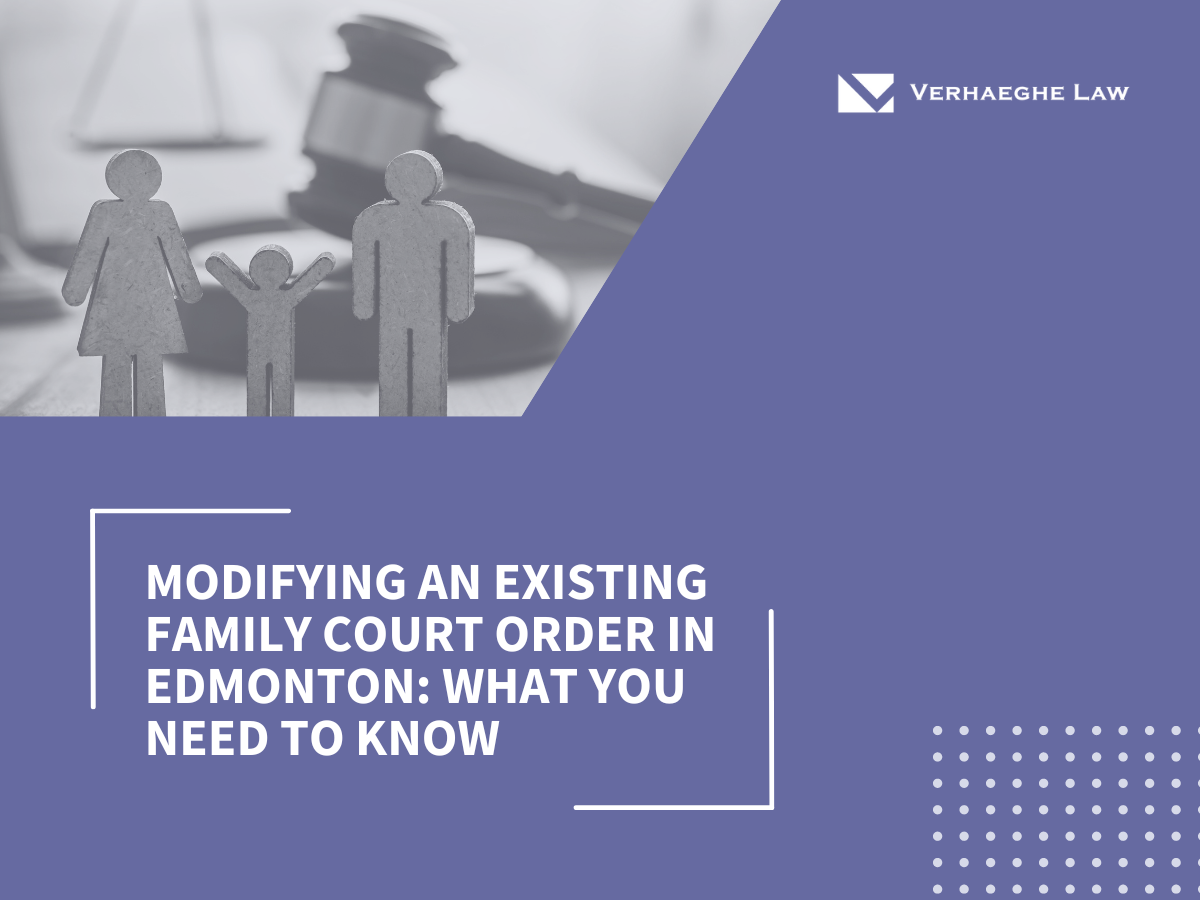Modifying an Existing Family Court Order in Edmonton: What You Need To Know

You may have been issued a court order at the end of a family law matter that you are hoping to have amended in some way. Before doing so, it might be helpful to familiarize yourself with what an order is, and when and how to begin the modification process.
At Verhaeghe Law Office, our Edmonton family lawyers may be able to help you pursue a modification to an existing order. Contact us today to schedule a consultation.
What Is a Court Order?
Alberta court procedures for civil or family law hearings tend to follow a relatively standard structure. At the end of a family law proceeding, the court will typically provide the involved parties with an order that may dictate how matters should be handled moving forwards. A court order may be considered final or temporary (interim). It may take some time to receive a final order.
Instances When a Court Order Would Need to Be Modified
You may want to modify a court order because you never agreed with its terms, or because the circumstances under which the order used to work have now changed. Some common reasons why you may seek to modify a family court order include:
- Amending decision-making responsibilities, parenting times, or other parenting arrangements: This may be necessary if one parent is relocating, remarrying, if your child’s needs or preferences have changed, and more.
- A change in financial circumstances: If you or your ex-spouse has experienced a significant change in income, support payments may need to reflect this and be altered.
- Violating an existing order: If a court-issued order is not being followed by one or both of the parties, you may seek a modification to enforce or adjust the terms.
- Medical or health issues: If there has been a significant change in the health or wellbeing of an involved party, such as a parent or child, the order may need to be amended to accommodate these changes.
- Protection from domestic violence: If the order does not address concerns surrounding domestic abuse or an unsafe environment, you may seek a modification to protect all parties involved.
- And more.
How Our Edmonton Family Law Lawyers Can Assist with Modifying a Court Order
You may want to consider why you believe a modification is necessary before moving ahead with the process. When doing so, it could be useful to consult an Edmonton family lawyer. Together, you may be able to review the existing order and brainstorm about the precise amendments that you hope to attain and why.
Then, you may need to gather supporting documentation or evidence to substantiate your request, which may include employment or financial records, medical reports, and more.
In some situations, it may be possible to get an order modified outside of court through mediation or negotiation. However, if this is not possible, you and your lawyer may have to file a motion for modification. In this case, you may have to submit paperwork and attend a hearing before a judge. We always recommend hiring a family lawyer for these types of situations.
If your request is approved by the judge, they may issue a new court order that reflects those changes. This now replaces the previous order, meaning that all involved parties are legally obligated to adhere to these new guidelines.
Contact Our Edmonton Family Law Lawyers for a Consultation
Whether you hope to amend a parenting plan, alter divorce-related payments, or make any other changes to an existing court order in a family law case, it may be helpful to speak to a lawyer who can familiarize themselves with the particulars of your situation.
If you would like to speak to our family lawyers about making a modification to a court order, contact Verhaeghe Law Office today to schedule a consultation.
** Please note, this article is intended as a general overview on the subject of family law, and is not intended to be legal advice. If you are seeking legal advice, please consult with an Alberta family lawyer.
